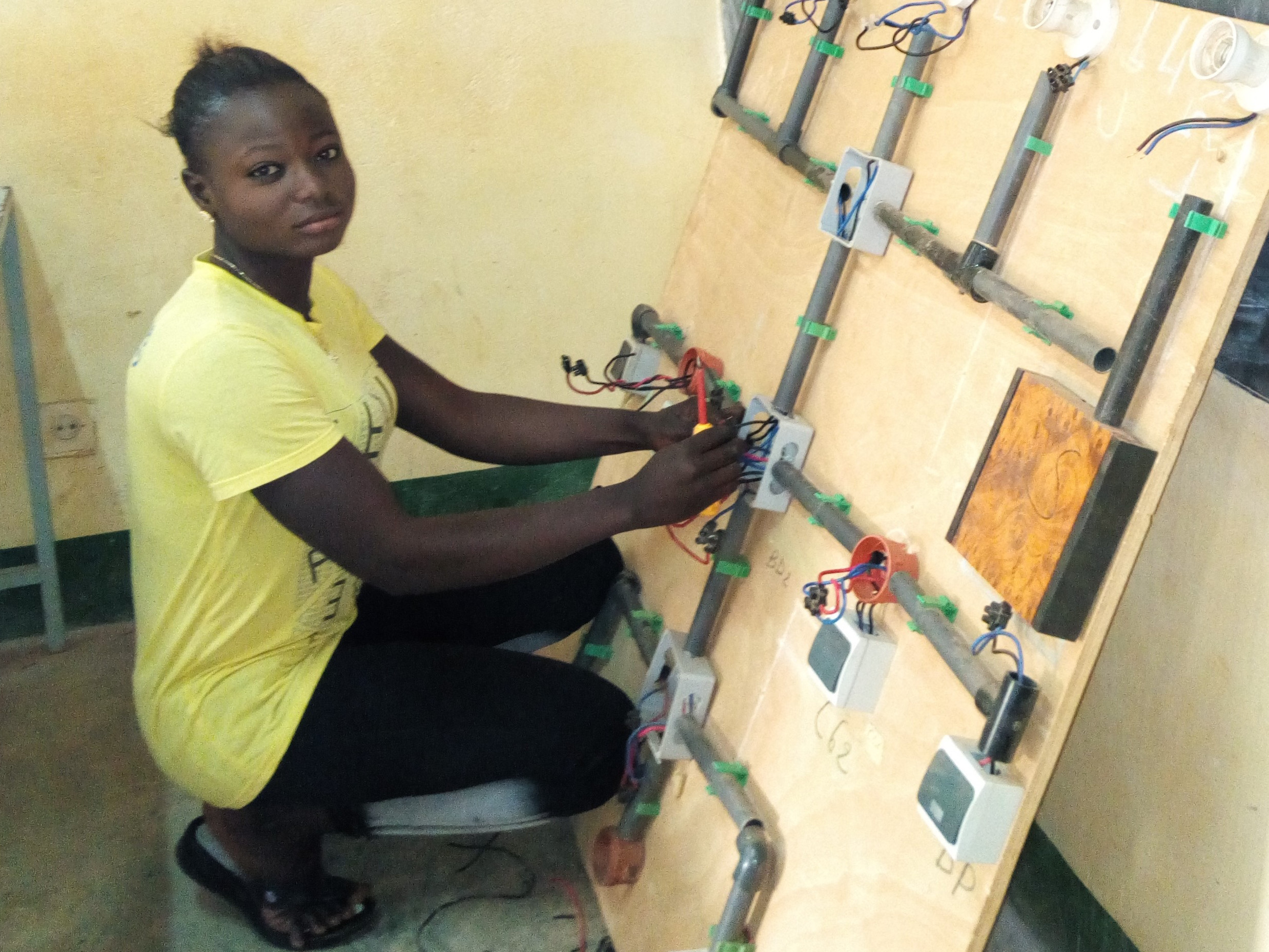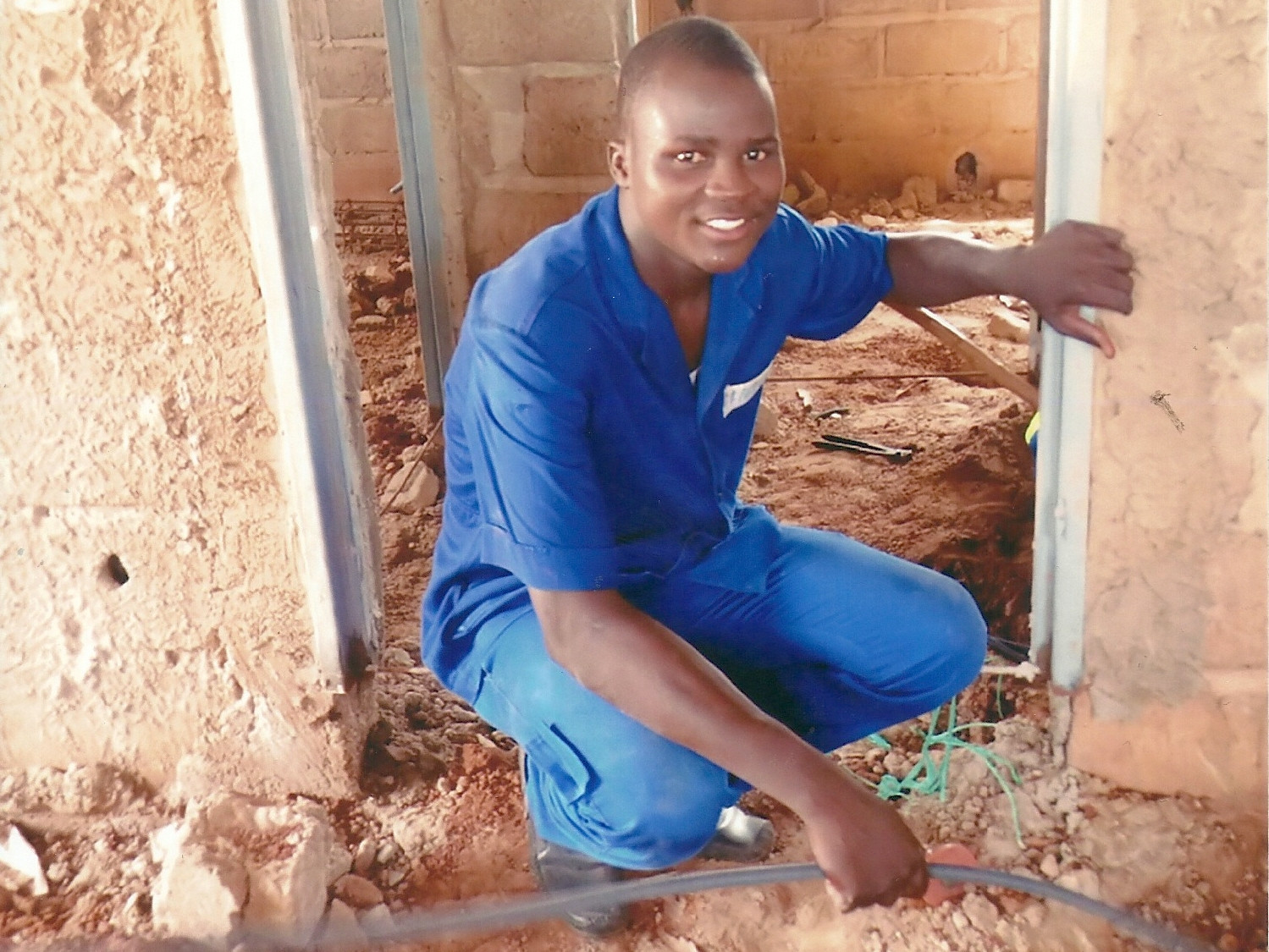CAFOC – Education and Training Center for Young People
Young People find a Future.

This project contributes in particular to the achievement of the Goals for Sustainable Development (SDGs) 1 and 4.*
BACKGROUND AND DEMAND
EDUCATION IS THE FUTURE
Many children and young people in Burkina Faso do not have adequate access to education. Many young people cannot attend secondary school due to high school fees.
The training center Centre d'Apprentissage et de Formation Continue (CAFOC) has been taking up this challenge for years, providing training to impoverished children and young people.
PROJECT ACTIVITIES
At the CAFOC education and training center, children and young people receive both a general education and basic training in highly requested technical professions:
- Theory and practice in electrical engineering
- Reading and writing
- Mathematics
- French
- English
Periodic internships at cooperating companies are a constant part of the training. In this way, numerous young people have been able to find employment on the local labour market after completing their training.
With donations collected by ÖJAB, the local education and training center CAFOC has been awarding student scholarships to disadvantaged young people living on the outskirts and in the slums of Ouagadougou since 2001. In this way they have the opportunity to attend school and learn skills in technical professions.
The donations collected by ÖJAB also support the general operation and maintenance of the CAFOC education and training center.

impact
FUTURE OPPORTUNITIES AND LIFE PERSPECTIVES FOR YOUNG PEOPLE
The combination of basic school education and practical vocational training in the fields of electrical engineering gives young people good chances of subsequently gaining a foothold in the labour market. The project thus makes an important contribution to reducing youth unemployment and offers young people sustainable perspectives in life.
HAMIDOU'S STORY

*The content of this publication has not been approved by the United Nations and does not reflect the views of the United Nations or its officials or Member States.
